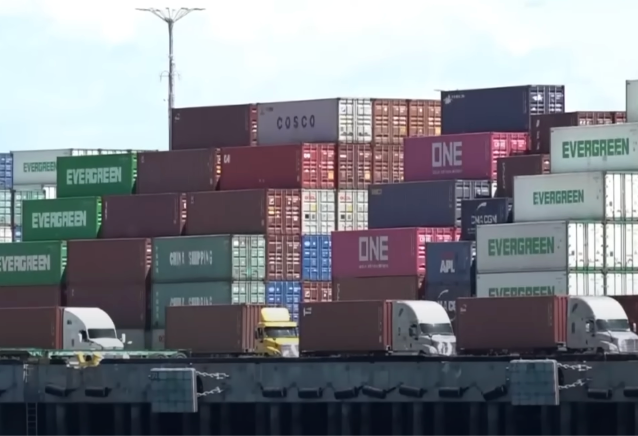News
JPMorgan Just Raised the Likelihood of a Global Recession from 40% to 60%

Source: YouTube
President Donald Trump’s new tariffs may trigger a global economic downturn. JPMorgan analysts increased their recession forecast from 40% to 60%, citing the sharp escalation in trade restrictions. The firm’s research warns that these tariffs may create the biggest shock to U.S. business conditions since World War II.
The policy calls for a 10% tariff on all imports, with higher rates of up to 50% for countries with persistent trade deficits with the U.S. Affected partners include China, Japan, South Korea, and the EU. The total impact raises the average U.S. import tax burden to 24%. That’s equivalent to 2.4% of national GDP, and analysts say it rivals the largest tax hike in modern history.
According to JPMorgan’s lead economist Bruce Kasman, the policy is not just a tax. It’s a risk multiplier. Supply chains will break. Inflation will rise. Retaliation will follow. These effects combined may tip the global economy into contraction before the year ends.
Why Markets Are Reacting Differently This Time
Unlike Trump’s earlier trade threats, this announcement triggered a full-blown market response. The S&P 500 fell nearly 5% the day after the tariffs were announced. It now sits more than 12% below its February high. That drop isn’t based on emotion. It reflects a shift in how seriously investors are taking Trump’s agenda.
Previous rounds of tariffs often came with room to negotiate. This time, officials are holding firm. Commerce Secretary Howard Lutnick ruled out a reversal. He said the tariffs mark a structural change in global trade. The administration wants to reshape global supply chains, not just gain leverage.
While Treasury Secretary Scott Bessent suggested that reductions could be possible, his comments lacked weight. Markets read his remarks as optics rather than policy. Investors are adjusting portfolios as if the tariffs will hold, not fade.
This shift also reflects the timing. The U.S. economy is no longer operating with low inflation and zero interest rates. With inflation already at 2.8%, new tariffs may push it higher. Comerica Bank expects inflation to increase by 3% to 5% over the next 18 months.
What Investors Should Expect if a Global Recession Hits
JPMorgan's scenario is not a guaranteed outcome, but the firm says the risk has passed the tipping point. A 60% chance means investors must prepare for contraction. Corporate earnings will likely come under pressure. Higher input costs and lower demand will squeeze margins. Businesses dependent on global trade will be the first to feel it.
Stellantis has already shut down production at key plants in Mexico and Canada. That’s just the start. Retaliatory tariffs will follow. The EU and China have already prepared countermeasures, and more will likely respond if the U.S. stays the course.
For investors, the path forward requires a defensive tilt. Sectors like utilities, healthcare, and consumer staples may outperform in a slower economy. Global exporters and industrials will face more risk. Companies relying on international supply chains could see their profits disrupted or delayed.
Alternative assets, including gold and short-term bonds, may provide some protection. But long-duration bets and high-growth stocks could struggle if inflation persists or rates rise again.
The bottom line: Trump’s tariffs are not just a negotiating tool. Markets now treat them as policy. If that holds, investors should position for a world where the U.S. economy slows, global trade contracts, and volatility remains high through year-end.
Is your portfolio positioned for a global recession triggered by U.S. trade policy? Tell us what you think!



